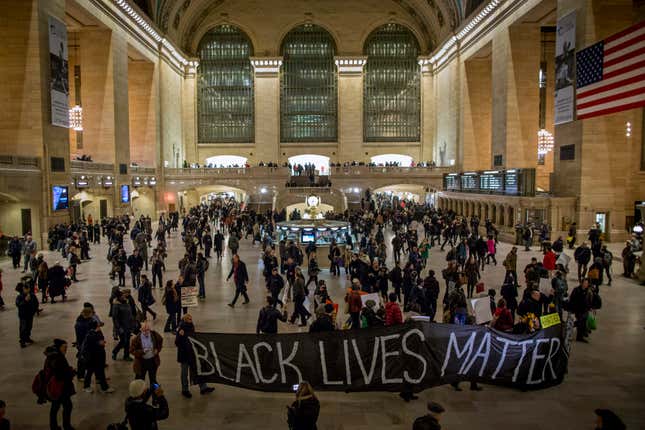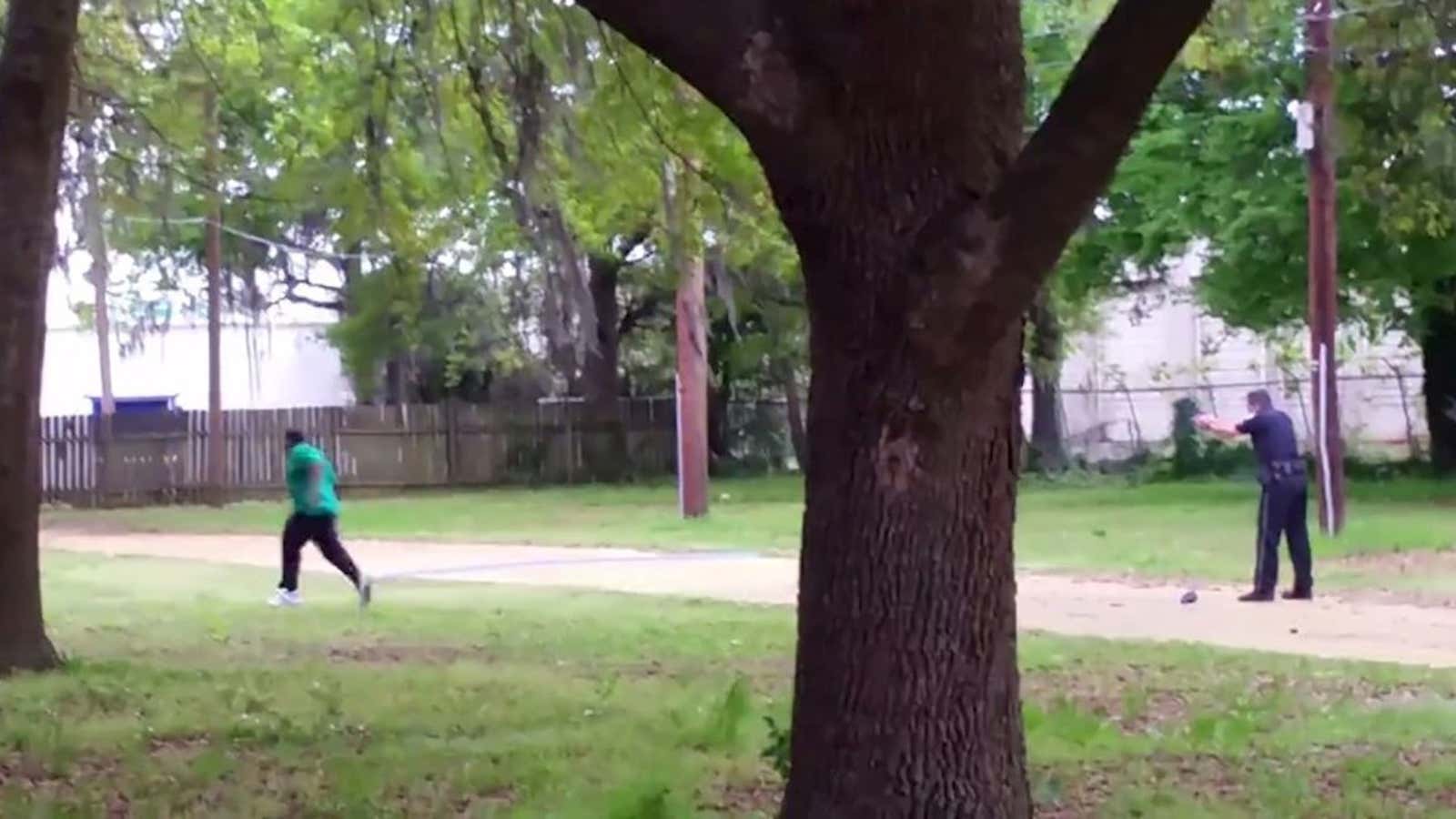I woke up this morning feeling considerably heavier, because last night (Apr. 7) a trigger-happy white cop in North Charleston, South Carolina, killed another black man in broad daylight. When the news first broke, I almost shed tears and thought that I was crazy; I have no relation to victim Walter Scott, but our shared racial identity is enough familiarity for me to mourn the loss of his life.
Some few hours later, I feel like I am fighting my way through an emotional maelstrom. Ever since Michael Brown’s murder in Aug. 2014, black death surrounds African Americans. In the face of this latest incident of brutality—and the countless others that came before it—we demand justice. We demand that white people care and sympathize with us in the same way we do for them.

It seems like a relatively small concession. After all, when white people are massacred, from Sandy Hook Elementary School in Connecticut to Charlie Hebdo in Paris, entire countries, entire continents mourn—and rightfully so. But when black people in the US tell the world that our so-called trusted police officers use us for target practice, white people too often seek ways to justify the murders, to explain why they were the “right” thing to do. They want to find or create a loophole, any loophole, to avoid one of the harsher realities of the 21st century: we just aren’t as progressive as we like to think, especially when it comes to who receives our attention and collective sympathy.
Just a few days ago, on social media, I saw the corpses of the Kenyan college students who were murdered at Garissa University, and I quickly scrolled down. I don’t need to see a dead body to grieve. When white people are murdered, people understand that they don’t need to share photos of the bodies on Facebook in order to arouse sympathy. All that is required is a simple news report and trust me, the journalists will tell the story, presumably in a humane manner. None of us will hear how a white victim used to smoke pot, had a criminal record, or was suspended in high school. There will be no purposeful—or inadvertent—diminishing of the awfulness of the situation.
The sad truth is that black people have never been able to rely on mainstream media to tell our stories accurately and honestly. I, and millions of other black people, have had to sit back and watch conservative newscasters, colleagues, co-workers, and even friends try to explain why Eric Garner and Tamir Rice had to die. It seems our words alone are still not enough to convince people. Is the smartphone our only resource in order to (try) to secure justice?
By now, millions have seen the footage of Officer Michael Slager shooting Scott in the back. And yet I wouldn’t be surprised if some pundit tried to argue that if only Walter Scott hadn’t run, the officer would not have shot him eight times, handcuffed his dying body, and potentially planted evidence to make sure he got away with the whole thing.
In 2015, I shouldn’t have to shout that black lives matter. But the fact that I have to utter these words is evidence that we still do not matter to many people. Our deaths fall on deaf ears and blind eyes, and boomerang away from willfully ignorant minds.
I’m tired of having to mince words because I may discomfort a reader. But more than that, I am frightened. I shake uncontrollably and my eyes well up each time a black person is transformed—through death—into a hashtag. I’m motionless whenever I see a black victim’s family try to keep their composure on television so that no one will be able to use their “unruly behavior” as justification for a loved one’s demise. The psychological wounds don’t have time to fully heal before another black person dies and they open back up again.
Today, there are countless videos, statistics, and reports to remind us that black people are being hunted in this country. But we people of color have already known this. Comedians like Dave Chappelle and shows like the Fresh Prince of Bel Air have incorporated police brutality into their skits for decades. It’s white people who have been so maddeningly slow to come around.
Honestly, as a black writer, I am getting tired of writing about injustice. I want to write about how great blackness is. But this fear of “who’s next?” is an unrelenting weight. I am exhausted but I refuse to remain quiet. Black bodies render not only America but also the entire world silent.
